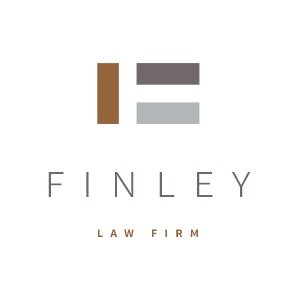Best Natural Resources Lawyers in Des Moines
Share your needs with us, get contacted by law firms.
Free. Takes 2 min.
List of the best lawyers in Des Moines, United States
About Natural Resources Law in Des Moines, United States
Des Moines, located in the heart of Iowa, is an area rich in natural resources including agriculture, water bodies, and mineral deposits. Natural Resources Law in Des Moines encompasses legal issues related to the management and conservation of these resources. This includes agriculture, water rights, land use, and environmental protection. The region benefits from an abundance of farmland, making agricultural laws particularly significant. Additionally, water usage from rivers and streams necessitates laws governing water rights and quality.
Why You May Need a Lawyer
Individuals or businesses may require legal assistance in natural resources law for several reasons. These include disputes over land use or ownership, water rights conflicts, compliance with environmental regulations, and agricultural contracts. Legal help may also be needed for matters involving mineral rights, navigating zoning laws, or addressing regulatory enforcement actions from governmental bodies. A lawyer specializing in natural resources can provide guidance through complex legal frameworks and ensure compliance with relevant laws.
Local Laws Overview
The local laws surrounding natural resources in Des Moines are influenced by both state and federal regulations. Key aspects include zoning laws that determine land usage, water rights laws governing the allocation and quality of water resources, and agricultural laws impacting farming operations. Environmental regulations from bodies such as the Iowa Department of Natural Resources (DNR) ensure the protection of the local environment. Understanding these multi-layered regulations is essential for anyone involved in resource management or related industries.
Frequently Asked Questions
What are water rights, and how do they affect me in Des Moines?
Water rights in Des Moines pertain to the legal entitlements to use water from local streams, rivers, and other bodies. These rights affect landowners and businesses in matters of irrigation, consumption, and industrial use. Legal disputes can arise when allocations conflict or when environmental regulations limit usage.
How are agricultural lands regulated in Des Moines?
Agricultural land use is regulated through zoning laws, environmental statutes, and federal agricultural policies. Compliance with these regulations is necessary for sustainable farming practices, which may require legal advice to navigate effectively.
What is the role of the Iowa Department of Natural Resources (DNR)?
The Iowa DNR is responsible for managing the state's natural resources, including enforcing environmental laws, overseeing wildlife conservation, and regulating state parks. Their role includes issuing permits and ensuring compliance with environmental regulations.
Are there restrictions on mineral rights and extraction in Des Moines?
Yes, mineral rights and extraction are subject to both state and federal regulations, focusing on environmental impacts, land use, and safety. Legal assistance may be necessary to acquire permits and ensure adherence to all relevant laws.
How can zoning laws affect my property use in Des Moines?
Zoning laws dictate how land can be used, such as residential, commercial, or agricultural purposes. Non-compliance with zoning laws can lead to legal disputes and penalties, making legal advice critical for property development or changes in land use.
What steps should I take if facing an environmental regulatory violation?
If facing an environmental regulatory violation, it's important to consult a lawyer immediately. They can help assess the situation, negotiate with authorities, and work toward compliance or penalty reduction.
Can I challenge a government decision regarding land use in Des Moines?
Yes, it’s possible to challenge government land use decisions, but this process can be complex. Legal advice is essential to navigate administrative procedures and present a compelling case.
What rights do I have as a landowner in Des Moines?
Landowners have specific rights and responsibilities governed by local, state, and federal laws. These include rights to use, lease, sell, or develop land within the constraints of zoning and environmental regulations.
How can I ensure compliance with environmental laws for my business?
Ensuring compliance often requires a comprehensive understanding of applicable laws and regular audits. Consulting a legal expert in environmental law helps identify applicable regulations and implement compliance strategies.
What are common legal issues in Des Moines related to natural resources?
Common legal issues include water rights disputes, zoning regulation conflicts, compliance with agricultural and environmental laws, and land use disputes. These issues often require specialized legal knowledge to resolve effectively.
Additional Resources
For those seeking more information or assistance, the following resources may be helpful:
- Iowa Department of Natural Resources (DNR)
- Polk County Zoning and Planning Department
- Iowa State University's Center for Agricultural Law and Taxation
- Des Moines Water Works
- Local legal aid clinics and environmental organizations
Next Steps
If you need legal assistance in the field of natural resources, consider the following steps:
- Consult with a lawyer specializing in natural resources or environmental law in Des Moines.
- Gather all relevant documents and evidence pertaining to your issue.
- Reach out to local governmental bodies or organizations for guidance and support.
- Consider alternative dispute resolution methods, such as mediation, if applicable.
- Stay informed about changes in local and federal laws that may affect your case.
Lawzana helps you find the best lawyers and law firms in Des Moines through a curated and pre-screened list of qualified legal professionals. Our platform offers rankings and detailed profiles of attorneys and law firms, allowing you to compare based on practice areas, including Natural Resources, experience, and client feedback.
Each profile includes a description of the firm's areas of practice, client reviews, team members and partners, year of establishment, spoken languages, office locations, contact information, social media presence, and any published articles or resources. Most firms on our platform speak English and are experienced in both local and international legal matters.
Get a quote from top-rated law firms in Des Moines, United States — quickly, securely, and without unnecessary hassle.
Disclaimer:
The information provided on this page is for general informational purposes only and does not constitute legal advice. While we strive to ensure the accuracy and relevance of the content, legal information may change over time, and interpretations of the law can vary. You should always consult with a qualified legal professional for advice specific to your situation.
We disclaim all liability for actions taken or not taken based on the content of this page. If you believe any information is incorrect or outdated, please contact us, and we will review and update it where appropriate.













